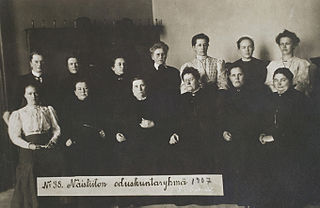
The politics of Hong Kong takes place in a framework of a political system dominated by its quasi-constitutional document, the Hong Kong Basic Law, its own legislature, the Chief Executive as the head of government and of the Special Administrative Region and of a multi-party system. Executive power is exercised by the government.

Regina Ip Lau Suk-yee, GBS, JP is a member of the Executive Council (ExCo) and Legislative Council of Hong Kong (LegCo), as well as the founder and current chairperson of the New People's Party. She was formerly a prominent government official of the Hong Kong Special Administrative Region (HKSAR) and was the first woman to be appointed the Secretary for Security to head the disciplinary service.

Jasper Tsang Yok-sing, GBM, JP is a Hong Kong politician. He is the founding member of the largest pro-Beijing party the Democratic Alliance for the Betterment and Progress of Hong Kong (DAB) from 1992 to 2003 and the 2nd President of the Legislative Council from 2008 to 2016.

The Democratic Party is a centre-left liberal political party in Hong Kong established in 1994. Chaired by legislator Wu Chi-wai, it is currently the third largest party in the Legislative Council of Hong Kong, having seven seats and 37 District Councillors. It is also the largest pro-democracy party in the legislature.

Civic Act-up is a small pro-democracy political group in the Hong Kong. It was founded on 24 September 2003 by a group of relatively young activists with the encouragement of Legislative Councillor Cyd Ho Sau-lan, to challenge the existing pro-government District Councillors in Wanchai District in the 2003 District Council elections. There is no formal structure in the group.
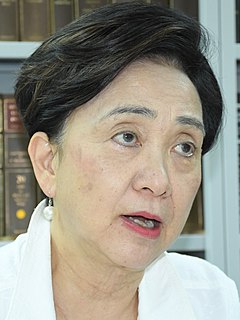
Emily Lau Wai-hing, JP is a politician in Hong Kong who champions press freedom and human rights. A former journalist, she became the first woman directly elected on the Legislative Council of Hong Kong in the 1991 LegCo elections. She has served as Legislative Councillor for the New Territories East Costituency throughout the 1990s and 2000s until she stepped down in 2016. She was chairperson of the Democratic Party of Hong Kong until 2016.

Martin Lee Chu-ming, SC, JP is a Hong Kong politician and barrister. He is the founding chairman of the United Democrats of Hong Kong and its successor, the Democratic Party, Hong Kong's flagship pro-democracy party. He was also a member of the Legislative Council of Hong Kong from 1985 to 1997 and from 1998 to 2008. Nicknamed the "Father of Democracy" in Hong Kong, he is recognised as one of the most prominent advocates for democracy and human rights in Hong Kong and China.
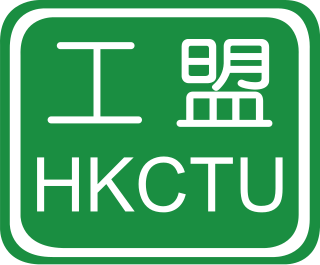
The Hong Kong Confederation of Trade Unions is a pro-democracy labour and political group in the Hong Kong. It was established in 1990. It has 160,000 members in 61 affiliates and has representation in the Legislative Council of Hong Kong (LegCo) to challenge government policies and push for legal protection of worker and trade union rights. It is one of the two most influential labour groups in Hong Kong..
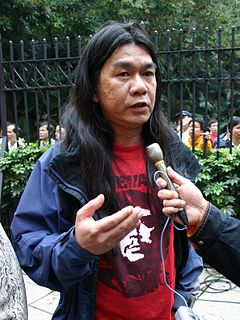
Leung Kwok-hung, also known as "Long Hair", is a Hong Kong politician and social activist. He is a member of the Legislative Council, representing the New Territories East. Being a Trotskyist in his youth, he was the founding member of the Revolutionary Marxist League. He became a political icon with his long hair and Che Guevara T-shirt in the protests before he was elected to the Legislative Council in 2004. In 2006, he co-founded a social democratic party, the League of Social Democrats (LSD) of which he was the chairman from 2012 to 2016.
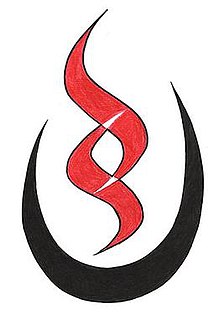
The Hong Kong Secondary Students Union is a pro-democracy student organisation in Hong Kong established in August 2003 by some pro-democratic secondary school students of Hong Kong. Formed by various students' associations (SA's) and students' councils (SC's) of secondary schools, it is the third largest politically involved youth organisation in Hong Kong, after the Hong Kong Federation of Students and the Hong Kong Youth and Tertiary Students Association.

The pro-democracy camp or pan-democracy camp refers to a political alignment in Hong Kong that supports increased democracy, namely the universal suffrage of the Chief Executive and the Legislative Council as given by the Basic Law under the "One Country, Two Systems" framework.

The Hong Kong 1 July protests is an annual protest rally originally held by the Civil Human Rights Front from the day of handover in 1997 on the HKSAR establishment day. However, it was not until 2003 that the march drew large public attention by opposing the legislation of Basic Law Article 23. The 2003 protest, with 500,000 marchers, was the second-largest protest seen in Hong Kong since the 1997 handover.

The League of Social Democrats is a social democratic political party in Hong Kong established in 2006. Chaired by Avery Ng, it currently holds no seat in the Legislative Council of Hong Kong after the disqualification of its sole legislator Leung Kwok-hung, the key person in the party.

Democratic development in Hong Kong has been a major issue since the transfer of sovereignty to China in 1997. The one country, two systems principle allows the Hong Kong government to administer all areas of government except foreign relations and (military) defence separately from the national Chinese government. Many Hong Kong citizens became concerned about democratic development when the first Chief executive of Hong Kong Tung Chee-hwa appeared to have mishandled this issue. Other democracy-related issues involving human rights and universal suffrage became the new focal point for the pro-democracy camp. Ever since the 1950s, the Chinese government has continually threatened the British over any attempts to bring about democratic development in Hong Kong. Attempts to bring Hong Kong citizens to the negotiating table by the British during the Sino-Anglo discussions were rejected by Beijing in the late 1980s. The last governor Chris Patten faced a great deal of opposition in changing the former colony's political system.

Carrie Lam Cheng Yuet-ngor, GBM, GBS is a Hong Kong politician serving as the 4th Chief Executive of Hong Kong since 2017. She served as the Chief Secretary for Administration, the most senior principal official, from 2012 to 2017, and as Secretary for Development from 2007 to 2012.

Pro-Beijing camp, pro-establishment camp or pro-China camp refers to a political alignment in Hong Kong which generally supports the policies of the Beijing government towards Hong Kong. The term "pro-establishment camp" is regularly in use to label the broader segment of the Hong Kong political arena which has the closer relationship with the establishment, namely the Government of the People's Republic of China (PRC) and the Government of the Hong Kong Special Administrative Region (HKSAR). It is also portrayed as the "Patriotic Front" by the pro-Beijing media and sometimes portrayed as "loyalists" by the rival pro-democracy camp.
Liberalism has a long tradition in Hong Kong as an economic philosophy and has become a major political trend since the 1980s, often represented in the pro-democracy camp, apart from conservatism which often constitutes the pro-Beijing camp.
The Decision of the Standing Committee of the National People's Congress on Issues Relating to the Selection of the Chief Executive of the Hong Kong Special Administrative Region by Universal Suffrage and on the Method for Forming the Legislative Council of the Hong Kong Special Administrative Region in the Year 2016, commonly known as the 31 August Decision, is a decision made by the Standing Committee of the National People's Congress (NPCSC), the national legislative body of the People's Republic of China (PRC) on 31 August 2014 which set limits for the 2017 Chief Executive election and 2016 Legislative Council election in the Hong Kong Special Administrative Region (HKSAR).
The 2010 Hong Kong democracy protests reflected the growing force of the pro-democracy movement in the region, and were sparked by events that year including electoral reforms and the arrest of a high-profile Chinese activist, Liu Xiaobo. The democracy movements of 2010 can be seen as a precursor to the events of the 2014 Umbrella Revolution.

The Fugitive Offenders and Mutual Legal Assistance in Criminal Matters Legislation (Amendment) Bill 2019 is a proposed bill regarding extradition to amend the Fugitive Offenders Ordinance in relation to special surrender arrangements and the Mutual Legal Assistance in Criminal Matters Ordinance so that arrangements for mutual legal assistance can be made between Hong Kong and any place outside Hong Kong. The bill was proposed by the Hong Kong government in February 2019 to establish a mechanism for transfers of fugitives not only for Taiwan, but also for Mainland China and Macau, which are excluded in the existing laws.

